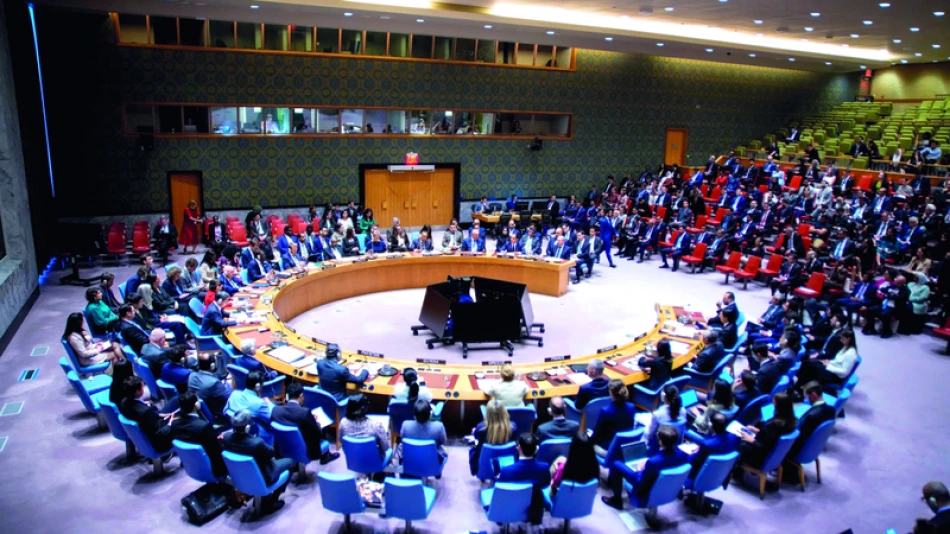
United Nations Struggles to Fulfill Its Founding Vision After 80 Years
The United Nations celebrated its 80th anniversary on October 24, but many member nations see the organization as stuck in a cycle of ineffectiveness that's costing everyone. Secretary-General António Guterres has proposed budget cuts, restructuring, and staff reductions for 2026 as financial constraints mount. President Trump summed up the core problem in his recent UN speech: "What is the purpose of the United Nations?"
The UN Charter outlines clear goals: maintaining international peace and security, promoting equal relations between nations, solving global problems through cooperation, protecting human rights, and serving as a forum for these shared purposes. But the reality falls short of these noble aims.
Since 1945, hundreds of major wars and conflicts have erupted worldwide. Yet the UN Security Council has only authorized military force twice: defending South Korea in 1950 and forcing Iraq out of Kuwait in 1990. Peacekeeping missions have had mixed results - some successes in places like Ivory Coast, but tragic failures like the response to Rwanda's genocide.
Current missions in South Sudan and the Democratic Republic of Congo have dragged on for decades, costing billions while failing to create lasting stability. The UN appears largely powerless in major crises like the Russia-Ukraine war. Most telling, one of the most significant peace agreements in decades - the Gaza ceasefire deal - excluded the UN entirely. The Secretary-General wasn't even part of the negotiations.
The organization's human rights record raises questions too. Over the past decade, the UN General Assembly has condemned the United States more often than Iran or North Korea. Israel has received more condemnations than all other countries combined. The UN Human Rights Council shows similar patterns, focusing disproportionately on certain nations while ignoring others that regularly violate their citizens' rights and freedoms.
Scandals involving corruption and misconduct have damaged trust in the organization. Even the UN's humanitarian efforts, which represent some of its most important work, have been tainted by mismanagement, ineffectiveness, and cooperation with criminal groups.
A Gallup poll found that 63% of Americans believe the UN isn't doing its job properly when it comes to solving the problems it was created to handle. For the United States, which provides nearly a quarter of the UN budget, these failures create serious frustration.
Previous Republican and Democratic administrations typically responded with calls for reform, diplomatic maneuvering, and occasional funding freezes. Trump's approach is more aggressive. His administration has pulled funding from multiple UN entities: the UN Relief and Works Agency for Palestinian refugees (UNRWA), the International Criminal Court, UNESCO, the Human Rights Council, the UN Population Fund, the Paris Climate Agreement, and the World Health Organization. Sometimes the US has imposed sanctions on UN bodies.
The Trump administration is now reviewing whether the United States should withdraw from other international organizations and treaties entirely.
Critical Moment
After eight decades, the UN stands at a crossroads. Former UN Secretary-General Dag Hammarskjöld once said the organization "was not created to take us to heaven, but to save us from hell." If the UN wants a future, it needs to embrace calls for reform, refocus on its core responsibilities, and abandon unrealistic side goals that distract from its main mission.
The financial pressure isn't just about money - it reflects deeper questions about whether international institutions can adapt to modern challenges. Other major powers like China and Russia have their own views on how global governance should work, and they're not necessarily aligned with the UN's current structure.
Here's what makes this moment different: the US isn't just threatening to withhold funding or push for gradual changes. It's questioning the fundamental value of multilateral engagement through existing institutions. That puts pressure on other member nations to either step up with alternative funding and leadership, or watch key international mechanisms weaken further.
Most Viewed News

 Sara Khaled
Sara Khaled






